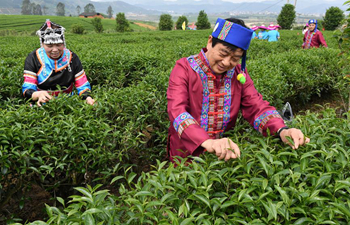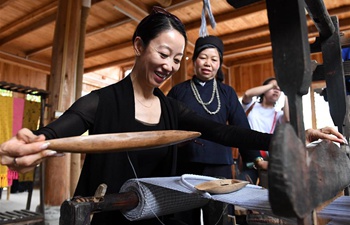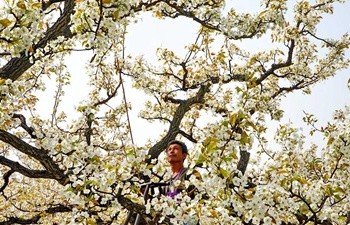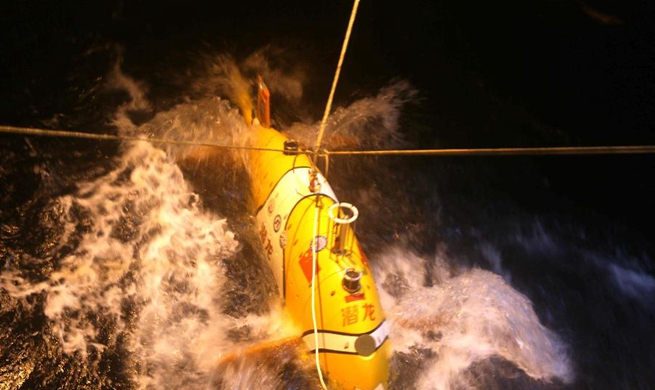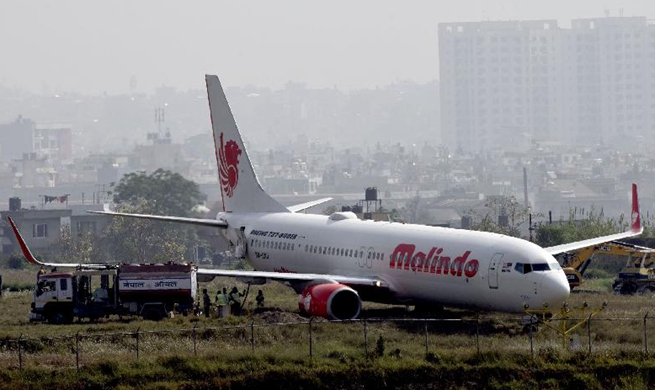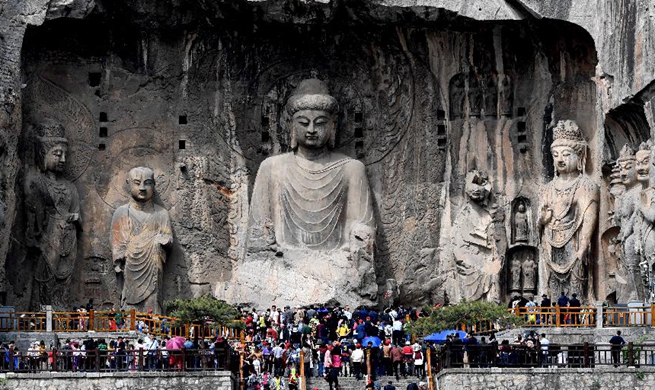HONG KONG, April 20 (Xinhua) -- Hong Kong Monetary Authority (HKMA) said on Thursday that it has bought Hong Kong dollars from the market for 13 times since last Thursday, which is a normal operation in accordance with the design of the Linked Exchange Rate System (LERS).
On April 12, HKMA's weak-side Convertibility Undertaking of 7.85 HK dollars against the U.S. dollars was triggered during London trading hours. HKMA said there is no huge short selling of Hong Kong dollars and the risks are under control after the interventions.
Officials and economists here believe that HKMA is capable of dealing with the fluctuation of Hong Kong dollars, and the act of HKMA can normalize Hong Kong interests, reduce sell-off activities and stabilize the exchange rate of Hong Kong dollars.
The HKMA bought 816 million HK dollars (about 104.08 million U.S. dollars) from the market on April 12, which was the first time since 2005, when three refinements to the operation of the LERS were introduced.
As of Friday, HKMA has already bought about 51 billion HK dollars from the foreign exchange market since its first intervention, leaving the surplus in the banking system at 128.52 billion HK dollars on Thursday.
The LERS was established in 1983. The introduction of the three refinements to the operation of the LERS in 2005, which included the shifting of the existing weak-side Convertibility Undertaking by the HKMA to sell U.S. dollars to licensed banks from 7.80 to 7.85; since then, the Convertibility Zone lies between 7.75 and 7.85.
When the exchange rate between HK dollar and U.S. dollar reaches 7.85, HKMA will buy HK dollars from the market, reducing the capital flows in the local market, which in turn, causing the interest rate of HK dollars to rise and narrowing down the interest rate gap between HK dollars and U.S. dollars. The pace of Hong Kong currency capital flow slowed down, causing the weakening of HK dollar.
Howard Lee, Deputy Chief Executive of HKMA, told Xinhua that recently the weak-side Convertibility Undertaking of 7.85 HK dollars against the U.S. dollars has been triggered frequently, as the U.S. interest rate hike first sparked in December, 2015, and there has been six times in total. However, Hong Kong interest rate has never followed suit. Investors then sold off Hong Kong dollars and bought in U.S. dollars, causing a fall of the Hong Kong currency value.
Lee said that in the past ten years, there has been about one trillion HK dollars entering Hong Kong market, and the arbitrage act is normal. According to HKMA, they have not seen any huge short selling of Hong Kong dollars.
Lee said that Hong Kong has enough foreign reserve to deal with the situation. As at the end of January 2018, the monetary base was 1,700.5 billion HK dollars, backing assets was 1,836.5 billion HK dollars.
Paul Chan Mo-po, Financial Secretary of China's Hong Kong Special Administrative Region government, said that Hong Kong has sufficient financial resources to handle the fluctuation of the exchange rate.
Chan said he is confident that Hong Kong can handle the extreme case in event of major money outflow.
Cheng Shi, Chief Economist of ICBC International Research Limited, said that HKMA's act of buying Hong Kong dollars from the market can normalize Hong Kong interests and stabilize the market expectation.
Resilience of Hong Kong's banks and financial system has enhanced since the financial crises in 1998 and 2008, according to HKMA.
However, Lee added that HKMA will stay alert and strengthen bank capital and liquidity management and introduce counter-cyclical prudential supervision measures for property mortgage business.
The HKMA will also monitor foreign exchange and money market operations, and co-operate with the Securities and Futures Commission to conduct cross-market surveillance.





